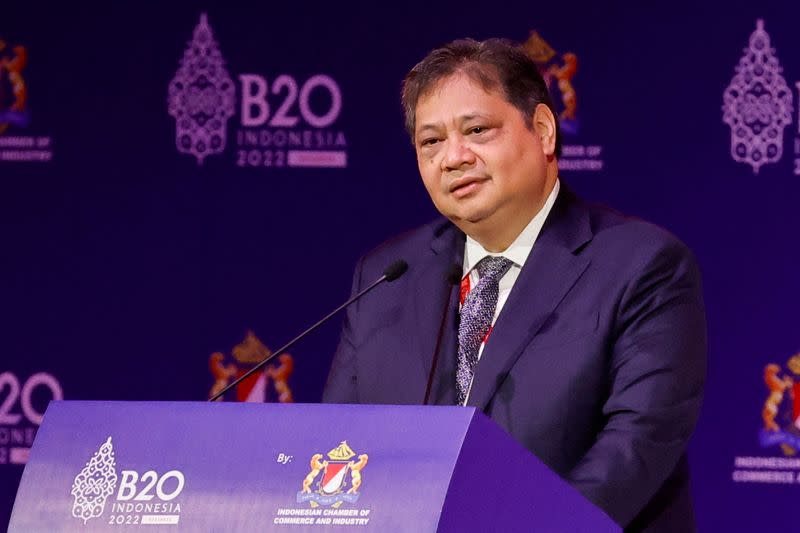Indonesia's export earnings rules set to take effect July 1- minister

JAKARTA (Reuters) - Indonesia will make some exporters retain part of their export earnings onshore for at least three months starting next month in a regulation draft awaiting President Joko Widodo's approval, the country's chief economic minister said on Thursday.
The resource-rich country has been working on new rules since earlier this year to bolster the domestic supply of U.S. dollars after export earnings reached a record high last year.
Coordinating Minister of Economic Affairs Airlangga Hartarto unveiled the plan in February for exporters of natural resources and derivative products to retain 30% of their proceeds for every export document worth at least $250,000 for three months.
Airlangga told Reuters in an interview while the rules are still awaiting the president's signature, they will be applied from July 1. He blamed the delay on the president's workload and said there has been no pushback against it.
"We have communicated this (with exporters)," he said.
Airlangga confirmed exporters will not be asked to convert their foreign exchange into rupiah.
Southeast Asia's largest economy has long been concerned about exporters' habit of parking earnings in offshore bank accounts, even after authorities required them to receive proceeds through the local banking industry more than a decade ago.
The issue has become more pressing since a commodity boom drove exports to a historic high of $292 billion last year but the country saw no equivalent jump in U.S. dollar supply.
An exporters association has previously said forcing exporters to convert earnings into rupiah would amount to a capital control regime.
(Reporting by Gayatri Suroyo, Stefanno Sulaiman and Ananda Teresia;Editing by Elaine Hardcastle)

 Yahoo Finance
Yahoo Finance 